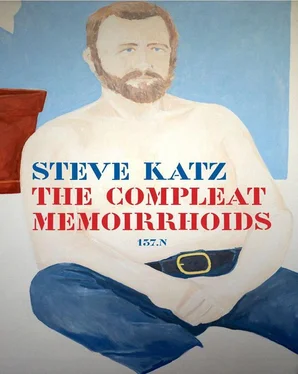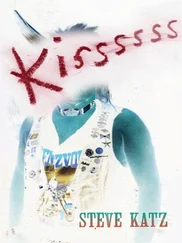Of course we had our own kind of honeymoon. We had married the week before at a justice of the peace in Ithaca, New York. We had emerged, merged. Love is a mindless blessing. It was a delicious time of life when everything seemed to be rising. We felt weightless in each other, though occasionally we looked out of the cluelessness of being barely twenty, thinking, “What have we done?” Jingle was from Winnemucca, Nevada, and I was from New York City, better acquainted with the East Coast. I picked the honeymoon site. Provincetown. She was so beautiful, her green eyes, her shiny brunette, her cheerful energy. I don’t know how she saw me. We would make a love nest on the beach, with foaming surf, and a full moon on the way. Our passion tent in the dunes. I had rigged a rope harness that went across my chest and under my arms, and pulled our stuff across the sand in a wooden crate. It was an exhibition of my male strength and bullish ingenuity, a great volunteer beast of burden contraption. I pulled tent, sleeping bags, fresh water, food, campstove, fuel. Jingle carried clothes, toothpaste and brushes, towels, soap, spoons, pajamas, in her backpack. Just two of us alone in the dunes. What a pretty idea it was here at the perfect romantic lighthouse love point of interest.
We weren’t totally uncomfortable, but sand is at best a scratchy medium for erotic initiation. And dog day heat all through the afternoon dulls the newlywed friskiness. We encouraged each other and did soldier on, hiking on the beach in the cool mornings, cooing moonwards at night. We tried to stay out of the heat through midday with a choice of baking in the tent or roasting in the open. It helped to dive into the surf and we stayed in the water like a couple of seals. That was fun and refreshing, and made our skins salty to the tongue.
We cut the beach visit short by a couple of days. After an early morning swim we loaded the crate and backpack, I got into harness, and we slowly trudged towards our VW bug. The heat had ramped up early. We were fond of our little car. It seemed very far away, the distance protracted by heat and exhaustion. Ours was one of the first bugs imported into the US. It had a tiny rear window, and directional signals that flipped out and pointed when you hit the lever. Gusty winds cut swirls of sand into our faces. The little car was parked there, in the parking lot. It was a hope. We had used all our water, and were getting a good lesson in the feel of the word parched. My tongue was so dry it scraped at the roof of my mouth. Perhaps there was some water in the car, hot by now. It wasn’t far to water if you were in a car. Maybe a Pepsi. Lemonade, O sweet lemonade. “Are you thirsty?” I asked Jingle. She looked at me as if I was nuts.
Two figures wobbled in the distance like apparitions in the waves of heat and bright sand, near the lighthouse parking lot. We were both dragging, drenched with sweat. This had become our honeymoon ordeal. Survive this and the marriage would be easy. At a certain point, when we were close enough, I realized I knew at least one of the people we had seen from the distance. It was my friend Ron Sukenick. He was romping on the beach with a girlfriend. He had graduated from Cornell two years before me, and this was the first time I’d seen him since. My first thought was to get by without his noticing. I felt embarrassed to look so shitty covered with sweat and sand. Jingle too, though naturally beautiful — in fact, she had been Winnemucca Rodeo Queen — looked bedraggled, hair stringy, full of sand, a few days without a bath.
Ron recognized me under the grime, and greeted me with great affection. He asked me what I’d been doing. He’d been at Brandeis getting his PhD, where he wrote his thesis on Wallace Stevens. That book became significant, a frequently used reference on the poet. I always thought the PhD was voluntary artistic and intellectual menopause, but Ron made it work for him.
“We’re married. We got married,” I said. I let the harness drop to my ankles. I felt like the slave in some biblical saga. Here was Ron, unencumbered, with a girlfriend and a cooler of beer, and here I was saddled like a mule, hot, exhausted, lugging our effects across the sand like we were displaced people.
“They’re married,” he said to his girlfriend. I think her name was Eva or Ellen or Edith. It wasn’t Lynn, whom he later married.
“I told you that,” she said, and spun across the sand in easy pirouettes. I don’t know what she implied, but it made me feel my life had taken a bad turn. As I got back into harness and hauled our stuff the rest of the way to the bug, Jingle trudging with me step by step, I kept repeating in my head, “Ron is single, I am married. Ron is single. I am married. Ron, single. Me married.”
We eat that fish, and the fish is delicious. Then she discusses the fish with the chef, its preparation, its presentation. We are at a Michelin one star restaurant in Quimper, Brittany. It was the sea bass or dace, flesh soft and delicate. She praises the chef for his insight, presenting this fish of delicate flesh on a complementary bed of crisp romaine and frisee. The greens support and contrast the soft white flesh. She compliments him for the discrete touches of herbs and butter. She is Martha Rose Shulman, a young woman but an already legendary cookbook author of The Vegetarian Feast, a groundbreaking gourmet vegetarian cookbook. She subsequently authors many other popular cookbooks, mostly vegetarian. She wrote The Vegetarian Feast when she lived in Austin, Texas. She moved to Paris then and sublet the apartment of Paolo Picasso, Pablo’s son. She supports herself as a food writer, and by making a popular dinner once a week for a small crowd, as a rent party. The walls are heavy with signed Picasso posters. She has befriended my son, Nikolai, who works off the books for Andree Putman, the trend-setting designer. I am teaching on exchange in the Languedoc, at the University in Montpellier, and take frequent TGV jaunts to Paris.
Ms. Shulman has a hankering to investigate the cuisine of oats in Celtic Bretagne. She invites me to come with her in her sturdy, comfortable Peugeot 403. It’s a privilege to do a food trip anywhere in France, and with a well known food writer it’s doubly rich. We head out for Brittany. I note that Jack Kerouac’s family comes from Brittany, “Ker” meaning the farm or land and “ouac” being the designation of the landholder or farmer — Ker’ouac. This, I realize, is similar to Welsh Celtic designations, like Caer’philly, the provenance of my favorite Welsh cheese.
Our first stop is in Tours on the way North. Martha’s fifteen year-old nephew has been exported to France to spend the year of his potential delinquency with a French family in Tours. They are generous and hospitable. The kid seems nicely tamed. He is into bike racing in a big way. They put us up for a night so we can see him compete in one of the many junior bike races staged all over France. We drive to some point on the route and watch him wheel by in the pack. It is a thrilling few seconds. Equally thrilling is the breakfast conversation. The master of the house is a psychiatrist. On the door of his office he flaunts a poster, a portrait of Freud assembled from drawings of nude female bodies deftly drawn so their pubic bushes serve as Freud’s beard and coif. The talk over an American-style breakfast of bacon and eggs is about life in France since World War Two. The psychiatrist whines about the situation. “I don’t know what has happened. It’s all the Russians have moved in. The Poles, the Jews, the Africans.” He must know that the boy comes from a Jewish family, as do Martha and myself. The boy tells us about going with this family to a beach in Normandy, renting a cabana, setting out blankets, umbrella, but after looking around the shrink’s mother said, “We can’t stay here, Marcel.” “Why, mamma?” The shrink was slightly annoyed. “Look around. There are Jews on this beach.” Anti-Semitism is a strange affliction. How did she know? Could she smell the lack of foreskins? She couldn’t have been looking at noses. The French themselves are celebrated for their prominent noses. Cyrano de Bergerac is the world’s greatest play featuring the nose. Luckily the boy had enough equanimity to let these moments wash off him.
Читать дальше












